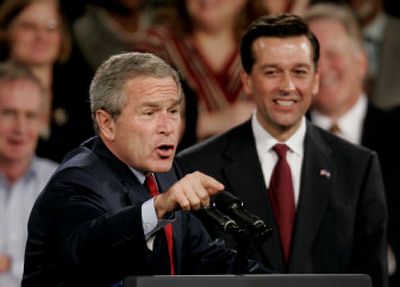Support grows for weekend elections

WASHINGTON – Millions of Americans will vote for state and local offices and ballot initiatives in today’s election as a matter of rote tradition. Nonetheless, compared with other election years, off-year elections without federal offices on the ballot typically see low voter turnout, perhaps 35 percent of the registered electorate.
But a group of pollsters and voting analysts are asking what they see as a fundamental question in increasing voter turnout in the United States: Why are elections held on Tuesdays, in the middle of the work week for most Americans?
The United States ranks last among 36 advanced democracies in voter turnout. Many of the countries ahead of America in turnout – France, Switzerland, Germany, Finland and Sweden among them – hold elections on Sundays. New governments in Afghanistan and Iraq, assisted by the United States, established Sunday elections as well.
“If we’re going to be the world’s leader in democracy, we’ve got to make it easier for our citizens to vote,” said Andrew Young, former U.N. ambassador, Atlanta mayor and congressman, and honorary chairman of a group called Why Tuesday? that is promoting the creation of weekend elections in the United States.
Young pushed for the 1965 Voting Rights Act, which assured black Americans the right to vote. He hoped that legislation would “perfect democracy,” but he said he now sees further room for improvement.
“I thought it was working fairly well, only to see that black voters were having the same problems voting as white voters,” Young said.
Congress set Election Day as the first Tuesday after the first Monday in November in federal law in 1845. Tuesday was the day most eligible voters – at the time, white male landowners – traveled to court in their county seats if they had business to conduct and thus could vote at the same time. Wednesday was market day. Religious observances occurred on weekends, and the trip to the county seat took three days in many cases. So Tuesday became Election Day by default.
But advocates for changing Election Day say those agrarian traditions don’t match today’s economy.
“For working people, their options are basically the peak times” of 7 to 9 a.m. and 6 to 8 p.m., said Norman Ornstein, a resident scholar at the American Enterprise Institute and a Why Tuesday? supporter. “If there’s a two-hour line, you’re stuck.”
Why Tuesday? released a bipartisan poll Monday that it said shows support for changing how and when Americans vote.
Of 1,000 respondents, 66 percent said Congress should make voting easier. Still, 50 percent of those polled opposed weekend elections, 45 percent favored the change and 5 percent had no opinion. But pollsters said weekend voting drew stronger support from voters age 18 to 34 (68 percent), blacks (68 percent) and working parents (55 percent).
Ornstein said Why Tuesday?, a nonprofit group, will begin running a few broadcast and print ads in the coming months “to start a national dialogue” and to try to convince Congress that Americans want election reform.
Sen. Herb Kohl, D-Wis., introduced legislation in 1997, 2001 and last January to move Election Day to a weekend. Each time, Kohl’s bills have languished in committee.